A Safe Approach to Garden Pest Control

Organic garden pest control has gained popularity and is continuing to grow because of the safe approach that’s offered, these products are formulated not only for the control of garden pests but to discourage the contamination of our environment and ecosystem which can negatively impact humans, pets, wildlife, beneficial insects and pollinators. Other pest products (non-organic pesticides) especially if misused or mishandled can pollute our streams, lakes, rivers, ponds, and water system or groundwater.
Organic pesticides are great for treating crops however, even when using these products caution should be taken, before application. The label should be read and understood for proper use. Growing an organic garden has tons of benefits and is worth the time spent in the great outdoors so if you’re thinking about growing organic here are some reasons to consider that can help you to determine if this garden method is the perfect fit for you.
How to Use Organic Pesticides
- Organic pesticides should only be used when there is a pest issue, although safe these products should not be used as good or safety measures or as a repellent/barrier to ward off garden pests. There are many reasons for this for example the use of organic pesticides when not needed will not only add to the waste of pesticides but your money as well.
- Beneficial insects that come in contact with these products can be harmed.
- To avoid plant burn do not use these products during the extreme heat. It is best to apply early in the morning just before the sun rises or during the evening hours to protect beneficial insects seeing they are most active in day time.
- Don’t apply pesticides with fertilizers.
- Ensure that pesticides are always kept in the original container never put pesticides in different containers. For example, food and drink containers that can be mistaken for consumption which can lead to injury or death.
- Don’t use pesticides during high winds because drift-off can come in contact with beneficial insects.
- Don’t apply pesticides if rain is forecast.
- When mixing pesticides mix according to the manufacturer’s label.
- When applying pesticides, spray application should come out fine and misty for total coverage of both the top and the leaf’s undersides, coarse droppings will not do.
- Do not mix different pesticides unless allowed.
- After application ensure that kids and pests stay out of the treated area until the pesticides dry.
Some Common Garden Pest
PPE
Personal protective equipment is so important whether applying toxic or non-toxic pesticides to avoid health-related issues.
- Wear disposal protective clothing such as specialized suits that are made for pesticide application. If wearing a long-sleeved shirt and long pants with socks should not be added to the washer with other clothes. If possible wash in warm water. If skin has been exposed to pesticides wash with warm water and soap. Once used disposable clothing can be thoroughly disposed of by sealing in a garbage bag and placing the bag in the garbage container outside. Ensure that the container has a tight lid so kids and pets can access them.
- The proper gloves, eye goggles, and respirator are a must and should be worn when applying pesticides. Unlined rubber gloves are great and can be washed off with warm water and soap after use.
- Never eat, drink, or smoke while handling pesticides
- If the pest control applicator falls ill while applying pesticides or shortly thereafter contact your physician right away.
- Avoid the inhaling of vapors, sprays, or dust, always move away from these conditions and get fresh air.
- If pesticides are accidentally swallowed contact your physician immediately.
- If pesticide gets into your eyes, follow emergency directions on the manufacturer’s label, flush your eyes with water for 10-15 minutes, and get medical assistance.
Discard Empty Pesticide Container
- Only mix the recommended amount of pesticides to ensure that all are used in one setting.
- Don’t under any circumstances pour pesticides or mixture down any toilet, storm drain, drain, or sink.
- Empty containers should not be reused, rines empty containers 3 times and pour the water into the sprayer to be used at the targeted site. Place the empty container in a sealed plastic bag, the plastic bag should be placed in your trash can outdoors, and ensure that the trash can has a tightly seal lid so kids and pets can’t access it. Or your community may have a hazardous waste collection program, dispose of unwanted pesticides, and empty containers at designated locations.
- Only purchase the amount of pesticide that is needed.
The Benefits of Growing Organic
There are many benefits of growing organic some of these benefits include.
- Food has a better flavor.
- Growing healthy crops that will promote health and wellness.
The Advantages of Organic Pesticides

Here are a few listed facts about organic pesticides.
- Safe for Human Health.
- Great for for Biodiversity.
- Promote Soil Health.
- Cost-Effective.
- Safe for the Environment.
- Target-Specific.
Additional information
- Keep pesticides out of the reach of children and pets.
- Pesticides and equipment should be stored in a cool dry place that has good ventilation.
- Pesticides should never be stored near foods.
- Pesticides should never be stored near animal feed.
- Pesticides should never be stored near medicines.
- Pesticides should never be stored among cleaning supplies
10 Frequently Asked Questions (FAQs)
1. What is organic garden pest control?
Organic garden pest control means using natural methods and products—like neem oil, beneficial insects, or homemade sprays—to manage pests without synthetic chemicals. It’s a safer, more environmentally friendly way to protect your plants and the ecosystem.
2. Can organic pest control really be effective?
Yes! When used correctly, organic pest control can be highly effective. It might take a little more observation and patience, but you’ll be protecting your garden without harming pollinators, pets, or your soil.
3. What are some common organic pest control options?
Popular choices include:
-
Neem oil (for aphids, mites, and whiteflies)
-
Garlic or chili sprays
-
Diatomaceous earth (for crawling insects)
-
Companion planting
These methods deter or eliminate pests without harming your plants or the environment.
4. How do I keep bugs off my vegetables naturally?
Try planting pest-repelling herbs like basil, mint, or marigolds alongside your veggies. Apply neem oil or use insecticidal soap on a weekly basis. Also, check under leaves regularly and handpick any visible bugs—natural and effective!
5. What is companion planting, and how does it help?
Companion planting is the practice of growing certain plants together to naturally repel pests or attract helpful insects. Here is and example, planting marigolds near tomatoes can deter nematodes and aphids. It’s a smart, chemical-free strategy!
6. How do I attract beneficial insects to my garden?
You can encourage good bugs like ladybugs, lacewings, and hoverflies by installing a mixture of wildflowers, dill, yarrow, and fennel. These insects feed on harmful pests and help naturally balance your garden ecosystem.
7. Is diatomaceous earth safe for gardens?
Yes! Food-grade diatomaceous earth is safe for organic gardens. It’s a fine powder made from fossilized algae that dehydrates soft-bodied insects like slugs and beetles. Caution, be very careful not to inhale the dust, and reapply after rain.
8. How do I make a homemade organic pest spray?
One easy recipe:
Mix 1 tablespoon of mild dish soap, 1 tablespoon of vegetable oil, and 1 quart of water. Shake and spray directly on pests. You can also add garlic or cayenne pepper for an extra kick. Just test on a few leaves first.
9. Can I control pests without killing them?
Definitely. Deterrent methods, like row covers, strong scents (e.g., garlic or citrus sprays), or even decoy plants, can keep pests away without harm. You can also relocate pests like snails and caterpillars by hand.
10. How can I keep my garden pest-free year-round organically?
The key is prevention!
-
Rotate crops each season
-
Mulch to discourage bugs
-
Use compost to strengthen soil and plant immunity
-
Regularly inspect and remove affected leaves
-
Encourage a healthy balance of beneficial insects
Consistency is the secret sauce in organic gardening!
Conclusion
Organic pesticides have their advantages, these pesticides are highly prized, the next time you take a walk in your garden and discover garden pests lurking remember to take the safe approach and reach for one of these brands because doing so ensures that your garden plants will not only be taken care of but the protection of our environment and our ecosystem. This is a great and safe way to bring control to garden insect pests that seek to cause much damage to our landscape and gardens.
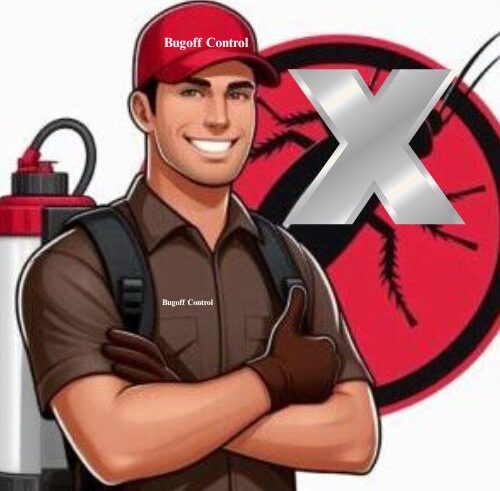


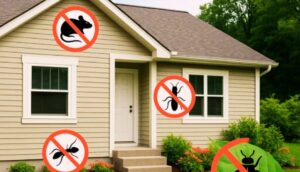
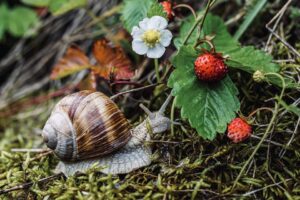
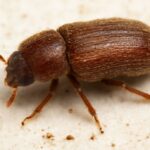
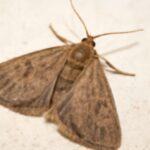
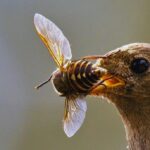
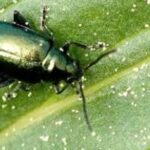

This article does an excellent job breaking down the importance of using organic pest control in the garden. The emphasis on safety—for the environment, humans, and beneficial insects—really stands out. From my own experience, switching to organic options has made a noticeable difference, especially when it comes to protecting helpful pollinators like bees.
One question that comes to mind is: have you noticed any specific organic brands that work particularly well for certain pests? This could be helpful for readers looking to tackle more stubborn garden problems!
Thanks so much for your kind words and for stopping by and commenting, pesticides such as neem oil,
Diatomaceous Earth and Insecticidal soap are some of the safer brands for organic gardening. I hope this helps.